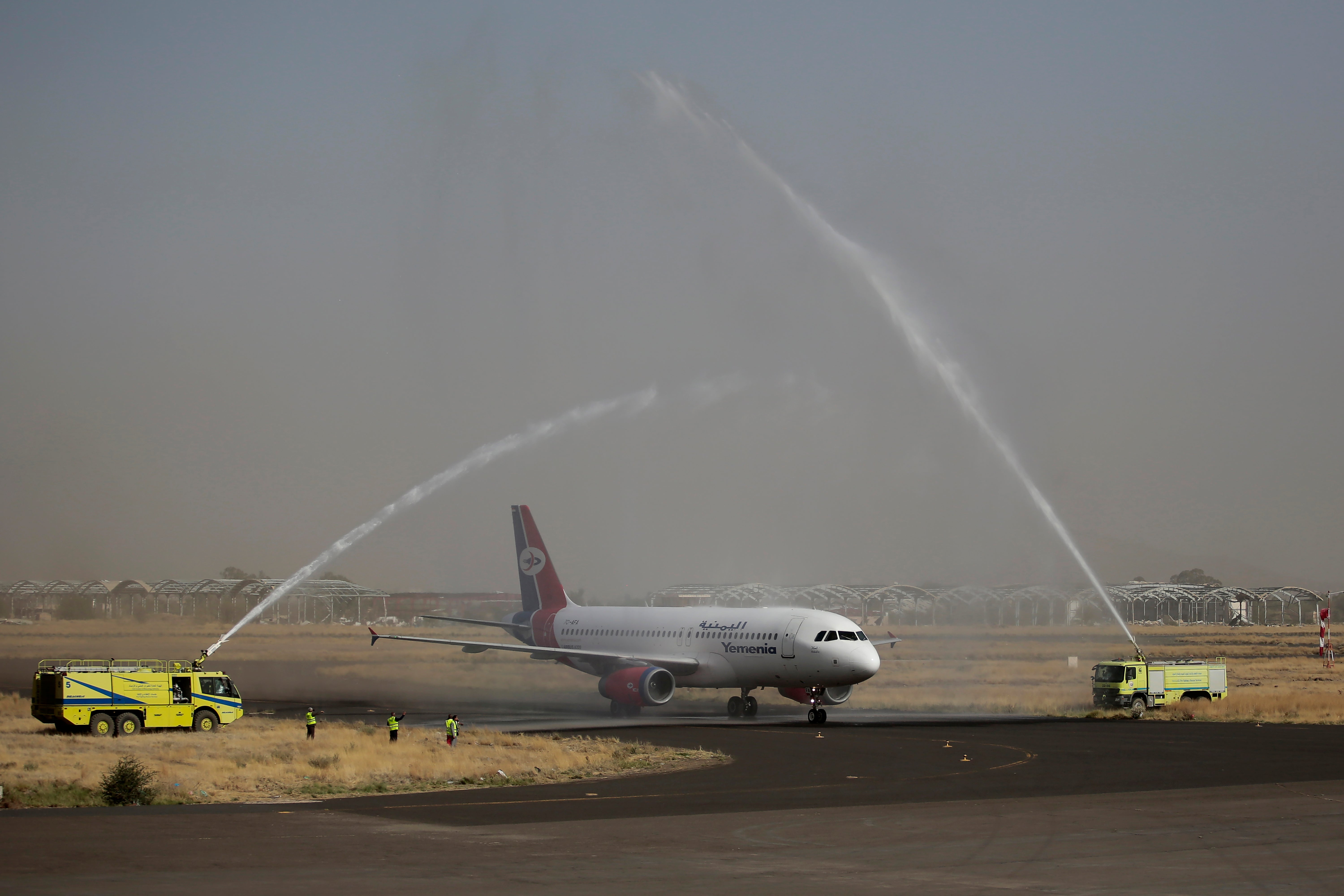UN says Yemen’s warring parties agree to renew truce
The United Nations Special Envoy for Yemen says that Yemen’s warring parties have agreed to renew a nationwide truce for another two months

Your support helps us to tell the story
From reproductive rights to climate change to Big Tech, The Independent is on the ground when the story is developing. Whether it's investigating the financials of Elon Musk's pro-Trump PAC or producing our latest documentary, 'The A Word', which shines a light on the American women fighting for reproductive rights, we know how important it is to parse out the facts from the messaging.
At such a critical moment in US history, we need reporters on the ground. Your donation allows us to keep sending journalists to speak to both sides of the story.
The Independent is trusted by Americans across the entire political spectrum. And unlike many other quality news outlets, we choose not to lock Americans out of our reporting and analysis with paywalls. We believe quality journalism should be available to everyone, paid for by those who can afford it.
Your support makes all the difference.The United Nations said Thursday that Yemen’s warring parties have agreed to renew a nationwide truce for another two months, a rare spot of good news for a country plagued by eight years of war.
“I commend the parties for taking these steps, and for agreeing to extend the truce," U.N. Special Envoy for Yemen Hans Grundberg said in a statement. "The truce represents a significant shift in the trajectory of the war and has been achieved through responsible and courageous decision making by the parties.”
The ceasefire between Yemen’s internationally recognized government and the Houthi rebels first came into effect on April 2 — the first nationwide cease-fire in the past six years of Yemen’s civil war.
The announcement, which is the outcome of UN continuous and concerted efforts, came only few hours before the original truce was set to expire later on Thursday.
Grundberg vowed that he will continue to mediate talks between the warring parties to ensure the consolidation of the new truce, and to eventually reach a political settlement to end the conflict.
The fighting erupted in 2014 when Iran-backed Houthi rebels descended from their northern enclave and took over the capital of Sanaa, forcing the internationally recognized government to flee. A Saudi-led coalition entered the war in early 2015 to try to restore the government to power.
The provisions of the original truce included reopening the roads around Taiz, establishing two commercial flights a week between Sanaa and Jordan and Egypt, and also allowing 18 vessels carrying fuel into the port of Hodeida. Both Sanaa and Hodeida are controlled by the rebels.
Fighting, airstrikes and bombardment have subsided during the truce, which started in early April, and the rebels have ceased their cross-border attacks on Saudi Arabia and the United Arab Emirates, the two pillars of the Saudi-led coalition.
Yemen’s war has killed over 150,000 people, including over 14,500 civilians. It has created now one of the worst humanitarian crises in the world.